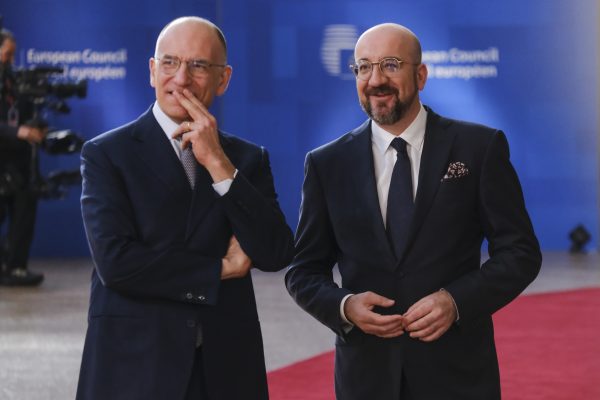China pursues an aggressive mercantile approach to dominate the supply chain of many minerals critical to the energy transition. By subsidizing domestic production and processing and buying up much of the world’s reserves of lithium, nickel, cobalt, and rare earth elements, it corners the market in a drive to establish a global critical mineral hegemony.
The US must respond and secure a non-Chinese-owned supply chain. Washington should work with democratic allies such as Australia, Chile, and Canada, which are home to significant reserves, to do so. The US must also accommodate the desire of developing countries (including several with free trade agreements with the US) to generate high-value-added products with their natural resources.
It will be tough. Many Australian, Chilean, and Canadian mines are Chinese-owned. China also often owns processing facilities around the globe, including nickel in Indonesia and lithium in Chile and Argentina.
The US recognizes the vulnerability of a foreign-dominated critical mineral supply chain. Domestically, the Trump administration promoted mining on federal lands, and the Biden Administration is pumping billions of dollars into green energy technologies and other uses of critical minerals. The Inflation Reduction and CHIPS & Science Acts promote domestic and international supplies of critical minerals.
But these policies remain insufficient. On its current trajectory, US mineral production will fail to satisfy our country’s clean energy demands. The US needs to step up its efforts to enhance both mining and processing. Such policies should include three components.
The first and most important is to match Chinese efforts to bring uneconomical resources into a recoverable reserve base.
Domestically, the Defense Production Act needs to be utilized. Recent signs are promising. In September, the Department of Defense awarded $20.6 million to developers of the proposed Talon nickel mine in Minnesota. The same month, the Pentagon tapped its own funds and additional money from the Inflation Reduction Act to give the Albemarle Corporation $90 million for the expansion of re-opening its Kings Mountain, North Carolina lithium mine. The reopened mine will be operational between 2025 and 2030, helping increase US production of electric vehicle batteries.
Internationally, the US should subsidize mining and processing in other nations. Just as China supports Indonesia’s nickel industry or Argentina’s lithium production, Washington needs to purchase these commodities at prices that ensure the economic viability of foreign operations while also investing in overseas processing capacity.
Second, the US should upgrade continental or hemispheric geopolitical supply security options. In both North and South America, it should work diligently with nations and national mining companies to incentivize and support the mining and processing of critical minerals. Although China has gotten a head start, significant mineral resources remain untapped, such as lithium in Bolivia.
Third, US policymakers need to enter into strategic partnerships with nations that have critical mineral resources. Some of the incentives and support needed to secure these partnerships will require difficult tradeoffs. Indonesia has asked the United States to begin talks on a trade deal for critical minerals so that exports from the Southeast Asian country can be covered under the US Inflation Reduction Act. But so far, Washington has rejected this overture out of concerns about Chinese investment in Indonesia’s mining industry as well as unease over working conditions and environmental standards.
None of these recommended actions will succeed individually, and aspects of them must operate within the domestic political and international geopolitical realities. But with some significant effort, the US and the West can secure the materials needed for the energy transition.
John A. Rupp recently retired from the O’Neill School of Public and Environmental Affairs at Indiana University, where he was an associate professor and senior research scientist working on technical and policy elements of the energy transition.
Bandwidth is CEPA’s online journal dedicated to advancing transatlantic cooperation on tech policy. All opinions are those of the author and do not necessarily represent the position or views of the institutions they represent or the Center for European Policy Analysis.





